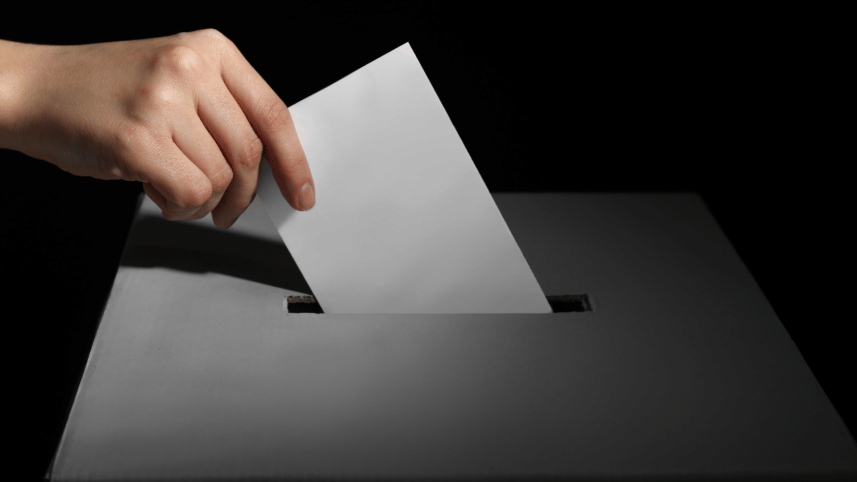We can’t afford another discredited election

There have been just a handful of people within the government who have risen to lead. There have been just a few who carved bold paths that would not fade with time. Within the halls of the Election Commission, such trailblazers are even rarer—worthy individuals whose actions could be emulated.
With the passing of former chief election commissioner ATM Shamsul Huda, we lost one such remarkable figure.
Since the restoration of democracy in 1991, a familiar pattern has emerged: as election commissioners complete their tenure, they are often criticised for becoming entangled in controversies. These controversies have repeatedly damaged the credibility of this vital constitutional body, which is entrusted with upholding the democratic ideal of free and fair elections.
Shamsul Huda was one of the rare exceptions—when he retired as chief election commissioner, he did so with honour, with his head held high.
There have been 10 Election Commissions, with as many chiefs, since December 1990.
Among them, the commissions led by Justice AKM Sadeq, Justice MA Aziz, Kazi Rakibuddin Ahmad, KM Nurul Huda, and Kazi Habibul Awal were mired in deep controversies.
The Awal commission held last year's national polls, which were boycotted by major opposition parties, including the BNP. The ruling Awami League had to field dummy independent candidates—many of whom were party members—to make the polls appear participatory.
The Huda commission oversaw the December 2018 general election, which was marred by allegations from several political parties that ballot boxes were stuffed on the eve of the election.
The commission under Rakibuddin conducted the one-sided 2014 election, in which 153 MPs out of a 300-member house were elected unopposed, meaning that the ruling party was able to form government without a single vote being cast.
Justice Sadeq's commission held a similarly one-sided parliamentary election in February 1996.
Justice Sadeq and Justice Aziz were appointed by the BNP government under Khaleda Zia, while Rakibuddin, Nurul Huda, and Awal were appointed by the Awami League government under Sheikh Hasina.
Rakibuddin and Nurul Huda served full five-year terms. Habibul Awal, however, resigned in September last year just two and a half years after his appointment—a month after the current interim government had been sworn in. All three are now facing legal cases filed by the BNP over election irregularities. Nurul Huda and Awal are already behind bars.
The government has also launched a formal investigation into these three commissions to probe allegations of corruption, irregularities, and criminal activities during the national elections held under their leadership. This marks the first time since independence that two former CECs have been arrested and a government has initiated such an inquiry.
Justice Sadeq resigned only 11 months after his appointment. Justice Aziz's commission failed to hold the scheduled January 22, 2007, parliamentary election amid a growing political crisis, which led to the declaration of a state of emergency. He resigned after serving for 19 months.
In contrast, three commissions—led by Justice Abdur Rouf, Abu Hena, and ATM Shamsul Huda—were appointed by caretaker governments and were comparatively successful in holding parliamentary elections in 1991, June 1996, and 2008, respectively.
However, Justice Rouf resigned following a by-election in Magura, which was widely condemned for massive vote-rigging. This incident sparked protests and demands for the restoration of the caretaker government. Abu Hena resigned on health grounds amid opposition demands for his resignation, citing his perceived lack of impartiality during several by-elections.
Shamsul Huda assumed office as chief election commissioner on February 5, 2007, during a volatile political period. Just a month earlier, on January 11, 2007, a state of emergency had been declared due to escalating political unrest and violence, leading to the indefinite suspension of the ninth parliamentary elections scheduled for January 22.
The military-backed state of emergency led to the formation of a caretaker government headed by Fakhruddin Ahmed. When Huda took charge, the Election Commission was deeply discredited due to the actions of his predecessor, Justice MA Aziz, including a flawed voter list that further undermined public trust.
With the army's support, Huda's commission prepared an almost error-free voter list with photographs—one of the EC's most significant achievements—under his leadership. This initiative also led to the introduction of national identity cards, which have now become a core requirement for proof of identity anywhere in Bangladesh.
The Huda-led EC also introduced several key reforms: mandatory party registration, an electoral code of conduct for parties and candidates, transparent ballot boxes in the national polls.
The commission successfully held the December 30, 2008, general election. However, it initially faced criticism for inviting only the Saifur Rahman-led BNP faction to electoral reform talks. The issue was later resolved when the Khaleda Zia-led faction was also invited.
His commission also restructured the EC Secretariat, removing it from the direct supervision of the Prime Minister's Office, which significantly boosted staff morale. Additionally, the commission appointed its own officials as returning officers during parliamentary by-elections and city corporation elections. Huda served as Chief Election Commissioner until 2012.
The legacy of Shamsul Huda offers a powerful lesson: integrity, transparency, and institutional independence are not optional—they are essential for credible elections. His tenure proves that even in times of political turmoil, principled leadership can restore public trust.
Time and again, the nation has witnessed the same cycle—controversial appointments, flawed elections, and shattered public confidence. Each crisis is followed by promises of reform, only for the same mistakes to be repeated under a different name, a different face.
But at this juncture, we cannot afford any more mistakes.




 For all latest news, follow The Daily Star's Google News channel.
For all latest news, follow The Daily Star's Google News channel.
Comments